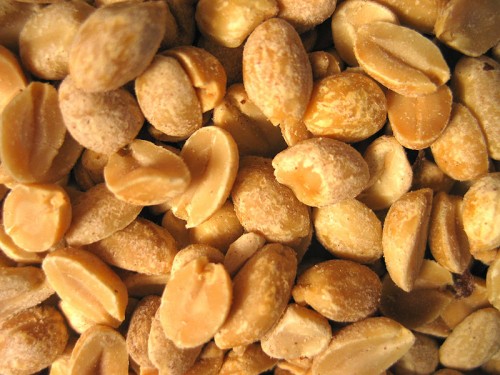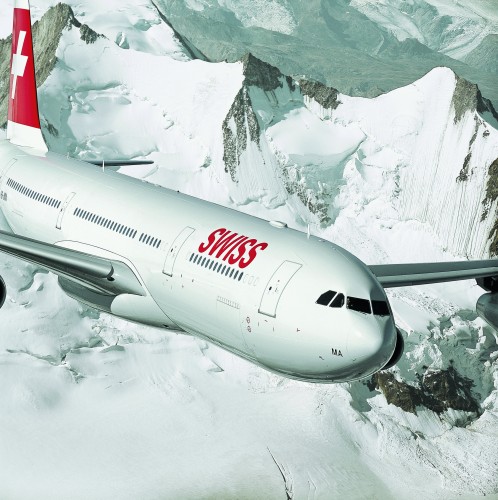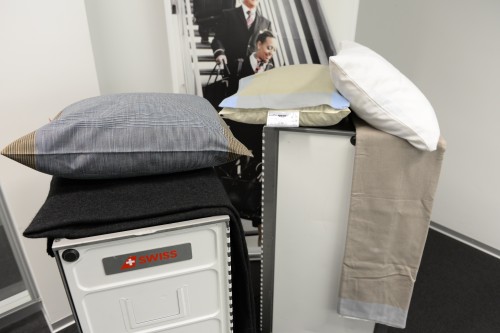Air travel can be a challenging and, at times, life-threatening situation for the millions of people with allergies or sensitivities to pet dander, strong scents and certain foods.
Some airlines have responded by replacing peanuts with pretzels, including a few gluten- and lactose-free dishes on in-flight menus and offering to create buffer zones of seats around concerned passengers.
Now Swiss International Air Lines, which offers long-haul flights to Switzerland from seven U.S. cities, is promoting its certification as the world’s first “allergy-friendly” airline from the Berlin-based European Center for Allergy Research Foundation.
ECARF, which awards its allergy-friendly seal to cosmetics, food, vacuum cleaners and other products, has a list of criteria its advisory board uses to evaluate hotels and airlines.
For example, ECARF requires that hotels keep allergy-causing green plants out of guest rooms and that airlines have hypoallergenic soaps in the lavatories and no snack bags containing peanuts on board.
“All certifications are valid for a period of two years and need to be recertified afterwards,” said Torsten Zuberbier, ECARF’s director. “In addition, members of the foundation or authorized persons make unannounced checks during the period.”
While Swiss has met ECARF’s two-page criteria for airlines, “we are not an allergy-free airline, but allergy-friendly,” said Sarah Klatt-Walsh, director of in-flight products and services for Swiss International Air Lines.
The distinction is important.
The airline has removed fresh flowers from the cabins and, starting May 1, all Swiss flights will offer lactose- and gluten-free food and beverage alternatives, a choice of pillows stuffed with synthetic materials as an alternative to down-filled versions, and unscented soaps in the lavatories.
And while the airline does not serve peanuts, it cannot claim to be peanut-free because some food items might be prepared using peanut oil. However, “pets are not a problem on board as we have a special air filter that pulls particles and animal hair downwards and out of the cabin,” said Klatt-Walsh.
“It’s certainly a step in the right direction, but I feel it doesn’t go far enough,” said Amy Wicker of Allergy Safe Travel. “There’s still a lot of ambiguity, especially for people with severe food allergies, but clearly every step they take to help mitigate those things will help people in the long run.”
SWISS believes the allergy friendly certification will help the airline stand out in a crowded field. “It strengthens our market positioning, which focuses on Swiss quality, hospitality and care,” said Klatt-Walsh.
In the United States, an estimated 50 million people suffer from allergies. But it’s unlikely the Asthma and Allergy Foundation of America, which also certifies asthma and allergy-friendly products, will be giving its seal of approval to domestic airlines anytime soon.
To certify an airplane as allergy friendly, said spokesman Mike Tringale, the organization would have to look at every item in the plane and take into account its allergy-friendliness, including the seats, an airline’s peanut policy, their policy about serving shellfish and their policies for pets in the cabin.
“I’m not saying airplanes and airlines have a problem,” said Tringale. “But as a patient advocate, when you call something allergy friendly, you better be darn sure you’ve taken these things into consideration and have a standard comprehensive enough to really pay off the promise of being allergy friendly to the consumer.”
(My story about the first certified allergy-friendly airline first appeared on NBC News Travel)
Thanks for visiting Stuck at the Airport. Subscribe to get daily travel tidbits. And follow me on Twitter at @hbaskas and Instagram.


